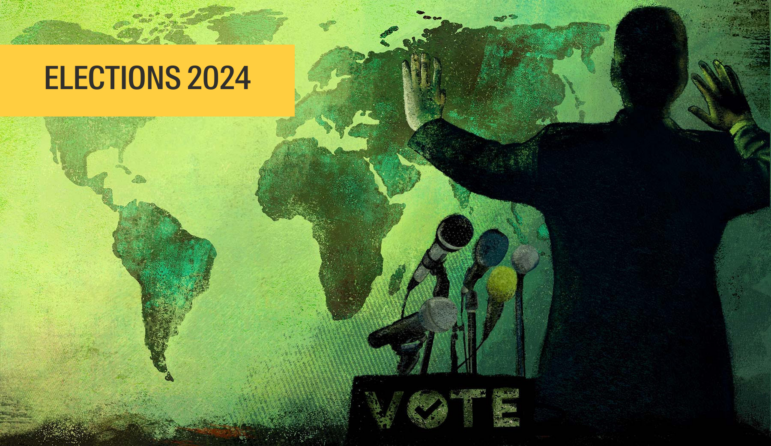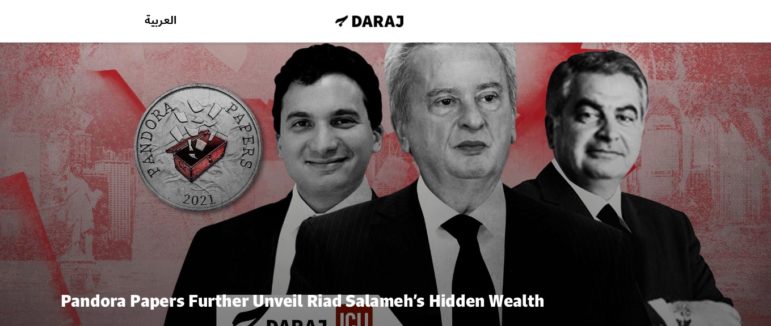

Image: Shutterstock
Tips for Investigating When Governments Shield Crime and Corruption
What do you do when government institutions shield corrupt officials within their ranks from media investigations?
In a session titled “High Crimes and Misdemeanors” at the 12th Global Investigative Journalism Conference, a diverse panel of reporters from Lebanon, Liberia, Russia, Sudan, and Ukraine suggested strategies to pry facts from obstinate government agencies, find whistleblowers, and deliver accountability for officials seemingly above the law.
Here are some of the tips from the session.
Use Social Media to Leverage Public Records
Freelance journalist Bettie K. Johnson-Mbayo said government oversight bodies in Liberia ignored or stalled several of her public records requests when she investigated politicians’ hidden assets and whether new anti-corruption rules were effective. So she turned to social media, and found that several lawmakers and their spouses had posted about their farms, luxury cars, and vacation homes — which she could then check against their official asset declaration forms.
Johnson-Mbayo found that one legislator, for instance, failed to declare his palm oil and rubber farm — by searching his family’s social media posts. “His wife’s social media informed us exactly of what we were looking for,” she said.
Johnson-Mbayo said persistence — and a professional demeanor — can help coax reluctant officials to abide by freedom of information (FOI) requests. She eventually obtained 25 of the 29 asset declaration forms she requested from one agency, relating to candidates for elections in December 2020. She found that 16 of these 25 declarations contained significant problems — not only with undeclared assets, but also that many “listed possessions like houses at far higher prices than they were worth, a well-known technique for hiding otherwise unexplained money.”
“In Liberia, accessing documents is difficult, but they are there,” she noted. “People can get fired or hunted if they release confidential documents. Often when you complain about FOI response, they just don’t care — but we also found that [officials] would delay just to see if you really want the information. So be persistent.”
Document Contradictions to Highlight Corruption
Persistence also emerged as the key strategy for Slidstvo.Info — an independent investigative news site in Ukraine — when its reporters investigated high-level corruption in the judiciary.
Anna Babinets, editor-in-chief of the agency and a regional editor for the Organized Crime and Corruption Reporting Project (OCCRP), warned that investigating judges and their ties to government officials can trigger police harassment and punitive court orders against journalists — but that the effort is important enough to warrant that risk.
For instance, her team used an official police video to show that a senior judge was caught driving while intoxicated, and then contrasted this evidence with a fellow judge’s ruling that there was no proof her colleague was drunk.
“We obtained records and found that… the judicial system is one of the most corrupt structures among official structures in Ukraine,” said Babinets. “It’s not easy investigating judges, and Ukrainian judges believe journalists are their enemies. But we think it’s really important to show the real life of judges.”
Consider High Risk Tactics Only as Last Resort
In stories where there is no other way to investigate issues of overwhelming public importance, some journalists have turned to reporting undercover. That was the case with Fateh Al-Rahman Al-Hamdani, a freelance journalist in Sudan, who went undercover for 18 months inside religious schools to document systematic assaults and imprisonment of young students for BBC News Arabic. But this tactic almost backfired. At one point, he was caught inside a school using his phone to surreptitiously film the shackling of children and had to quickly flee on foot.
Appeal to the Court of Public Opinion
Alia Ibrahim, co-founder of Daraj Media, a Beirut-based independent digital media organization, said having a high-profile reputation can provide a buffer, making investigations difficult, but that there are still ways to dig into powerful individuals.
Ibrahim pointed to two Daraj stories — as well as several parallel investigations by other newsrooms and the Pandora Papers — that exposed the hidden offshore wealth and alleged conflicts of interest amassed by Lebanon’s once-highly respected central bank chief, the longest-serving central bank governor in the world.
Ibrahim said that the governor’s international reputation had meant that he had been one of the most respected officials in the country, but that as people have learned of investigations into his personal wealth, and a role he holds at a private company, a position she says is not allowed under Lebanese law, questions had been raised about his credibility.
“For three decades, this man seemed above suspicion — internationally, considered the most respected person,” said Ibrahim. That changed virtually “overnight.”
“Through the Pandora Papers, we were also able to prove he was also managing another company, which is a violation of the law,” she alleged.
While the governor remains in his position, Ibrahim said the investigations have stripped away the artifice of his carefully-crafted reputation — and, therefore, his influence — both locally and internationally.
Look for Resistance within the Bureaucracy
Maxim Litavrin, a Moscow-based journalist with independent outlet Mediazona, described the power of reporting on repression with infographics — and the influence of moral conscience within any government.
Litavrin stressed that there are always individuals within government bureaucracies who disagree with repressive policies, and support accountability and reform. So it’s key to tap into these sources and safely use their information to highlight abuses.
“I know it may sound simple, but I swear it works: create a who-may-know list, with job titles and names; cross out unreachable or unlikely persons, like the president; and ask how can you connect with the people remaining,” he explained. “In the Belarusian protests of 2020, a lot of people were injured by police, but there were no official statistics about it. We found that a lot of [officials] were shocked by the police brutality, and we found a whistleblower.”
Litavrin recommended using free open source tools like Flourish and Datawrapper to illustrate government repression. But he said self-built tools are even better, for those newsrooms that can afford to hire coders.
Ibrahim summed up the challenge ahead for reporters tackling the highest crimes: “Those chronic problems we all share — from abuses by police to compromised judiciary to lack of accountability: it’s really the same story we’re chasing in all our countries. We are still to see the kind of accountability our findings demand.”










